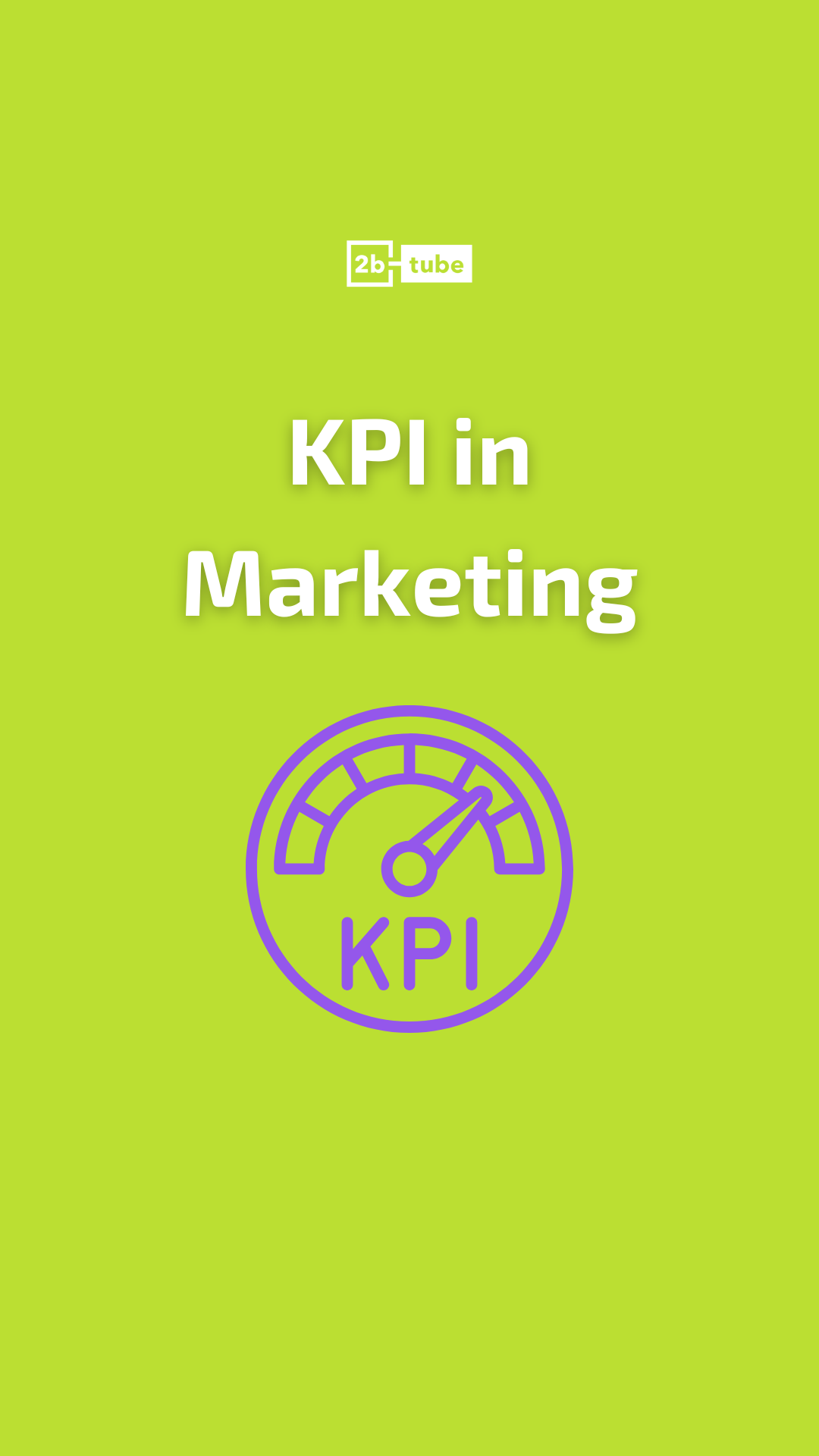
Something that all successful digital marketing strategies have in common is that their performance and impact are constantly monitored using KPIs (Key Performance Indicators). Through these marketing KPIs, companies can check if they are achieving the expected results.
But since not all KPIs in marketing offer the same information, it is important to know how to choose which are the most useful for your specific business. Want to know how to do it? Carefully read the information we have prepared for you.
What are KPIs in Marketing?
In digital marketing, KPI refers to the metrics you select to measure the performance of your strategies and actions in relation to the objectives you have set out to achieve.
It is important to keep in mind that not all the data you obtain from your marketing efforts are KPIs. A KPI, although it can also be a type of metric, is a tool specifically defined to measure and compare the results of your strategies, to know if you are on the right track or if you need to adjust your course.
For example, while the number of followers on a social network like Instagram or Facebook is a metric, the conversion rate of those followers into customers, organically or through ads on platforms like Instagram or Facebook, can be a KPI if what you want is to increase sales.
What are KPIs in Marketing Really for?
The short answer to this question is: to make better decisions. In digital marketing, where practically everything can be measured, KPIs are the indispensable allies that help you identify if your campaigns are giving results, if you are investing your budget well and, above all, if you are getting closer to your business objectives.
The key is to choose the right KPIs for your strategy. It is not about measuring everything, but about focusing on those indicators that really provide you with valuable information. This way, you can correct your actions in time, optimize resources and demonstrate with data the impact of your work.
On the other hand, marketing KPIs facilitate communication within the team and with those responsible for the company, since they allow showing progress and results clearly and objectively.
Categorization of KPIs
Not all KPIs in marketing are the same or measure the same thing. To understand more easily how they work and know how to choose the ones that can really help you make better decisions, it is useful to classify them according to the perspective they offer on the performance of your strategies.
In this way, we can categorize these indicators into:
Quantitative KPIs
Quantitative KPIs are those that are expressed in numbers and allow measuring results objectively and precisely. They are easy to compare and analyze, since they are based on concrete and measurable data.
Some examples of this kind of KPI most used in digital marketing are:
- Website traffic.
- Conversion rate.
- Cost per acquisition (CPA).
- Return on investment (ROI).
- Number of leads generated.
- Email open rate.
- Click through rate (CTR).
- Increase in sales.
These KPIs are ideal to evaluate the performance of different types of campaigns, whether organic or performance marketing, optimize resources and make decisions based on concrete data.
Qualitative KPIs
For their part, qualitative KPIs focus on more subjective aspects that are difficult to measure with numbers, but they are just as important to understand the perception and experience of users. They evaluate the quality of the actions, the satisfaction of the users or the impact of the brand.
Examples of the most common qualitative KPIs include:
- Net Promoter Score (NPS).
- Engagement or level of interaction.
- Opinions and comments from customers.
- Perceived quality of the contents.
These KPIs help you better understand the emotions and expectations of your customers, allowing you to adjust the tone, the message and the user experience.
What are the most Important Marketing KPIs?
As you have seen, in digital marketing, there are many KPIs, and each one has a key function to measure the success of your marketing actions. If you want to know which ones are essential, below we will tell you in more detail the 5 most relevant and used marketing KPIs.
1. Sales Revenue Growth
This KPI reflects the increase (or decrease) in revenue generated by sales in a given period. It directly shows the impact of your marketing actions on the economic results of the company, allowing you to evaluate if you are really generating value and meeting your commercial objectives.
2. Return on Investment (ROI)
The ROI measures the profitability of your marketing campaigns, that is, how much profit you obtain in relation to what you have invested. It is calculated: Revenue − Costs / Total investment. A positive ROI indicates that your strategies are working and generating profits, while a negative ROI means that you should optimize or rethink your actions.
3. Conversion Rate
The conversion rate indicates the percentage of users who perform a desired action (such as buying, subscribing or downloading something) with respect to the total number of visitors or contacts. It is one of the most important KPIs because it measures the effectiveness of your campaigns to transform visitors into customers or leads.
4. Cost per Acquisition (CPA)
The CPA indicator shows how much it costs you, on average, to get a new customer through your marketing campaigns. It is a very important indicator to control the budget and ensure that the investment in digital advertising is being efficient and sustainable.
5. Total Web Traffic
This KPI measures the total number of users who visit your website in a specific period. When traffic is high, it means that your website has a good user experience (UX) and is having greater visibility. Therefore, there are more conversion opportunities, although ideally it should always be analyzed together with other quality indicators.
How to Select KPIs in Marketing?
Although we have pointed out which marketing KPIs are the most essential, you may need to define some more to be able to measure in detail the success of your strategies. To do this, we help you by giving you some tips on how to select the indicators:
Define your Marketing Objectives
Before choosing any KPI, be clear about what you want to achieve. For example, increase sales, improve brand recognition, increase web traffic, build customer loyalty, etc. The chosen KPIs must be directly related to these objectives.
Analyze your Strategy and Channels
Think about the actions and channels that you are going to use (social networks, email marketing, SEO, advertising, etc.). Each channel may need a different KPI, so it is important that the indicators you choose measure the specific performance of your actions in each one.
Make Sure They are Measurable and Quantifiable
A good KPI should be easy to measure and, if possible, express its result in figures. This way, it will be easier for you to compare results and you will be able to analyze the evolution of your campaigns objectively.
Make Sure They Meet the SMART Criteria
Select KPIs that are:
- Specific: clear and concrete about what they measure.
- Measurable: that can be quantified.
- Achievable: realistic and possible to achieve.
- Relevant: aligned with the objectives of the business.
- Time-bound: with a defined period for compliance.
Verify that They are Relevant and Aligned with the Business
Choose KPIs that really add value and are connected with the success of the company. Not all metrics are equally important; focus on those that directly influence your main objectives.
Check that the Data is Available and of Quality
Make sure you can obtain the data necessary for the analysis in a reliable and habitual way. If you cannot measure the performance of your marketing actions well, it will not serve you as a KPI.
Bet on Simplicity and Clarity
The best marketing KPIs are those that are easy to understand by all members of the team. Avoid indicators that are too complex or that may cause confusion.
Review and Adjust Periodically
Both the objectives and the environment can change, so it is advisable that you review your KPIs from time to time to be able to adjust them or change them if necessary so that they remain useful.
Tools to Analyze and Measure KPIs in Marketing
To make it easier for you to work with your KPIs in marketing, you can use some of the tools currently available. Here we tell you some of the most useful for each key KPI explained above:
Sales Revenue Growth
- HubSpot. It allows you to track sales growth, see your team’s progress, and analyze the performance of your campaigns in one place.
- Looker Studio. If you already use Google Analytics, you can connect your data and create visual dashboards to see the evolution of sales and other indicators.
Return on Investment (ROI)
- Google Analytics. It shows you how much you have invested and how much you have earned thanks to your marketing actions.
- Google Ads. If you do paid campaigns on Google like Google Paid Search, this tool gives you detailed metrics on the performance and return of each ad.
Conversion Rate
- Google Analytics. It shows how many visitors perform the action you expected. It is very useful to identify which campaigns convert better.
- Hotjar. It helps you understand how users behave on your website, showing heat maps that reveal where they click and at what point they abandon the process.
Cost per Acquisition (CPA)
- Google Ads. It shows the cost of getting each customer through your ads, so you can adjust your campaigns to spend less and get more customers.
- HubSpot. It allows you to calculate the CPA of all your marketing and sales actions from a single platform.
Total Web Traffic
- Google Analytics. It is the basic tool to measure web traffic. It tells you how many people visit your site, from where they arrive and what they do while browsing.
- SEMrush. In addition to traffic, it helps you analyze SEO positioning and organic traffic you receive from search engines.
Do You Want to Define the KPIs of your Marketing Strategy?
Although now you know everything about marketing KPIs, you don’t have to deal with them alone. At 2btube, as experts in digital consulting, we can help you create a clear marketing strategy and choose the KPIs that really matter to your business.
This way, you can measure your results, improve every day and make your brand grow and position itself well in the digital world. Contact us and we will take off your strategy!




